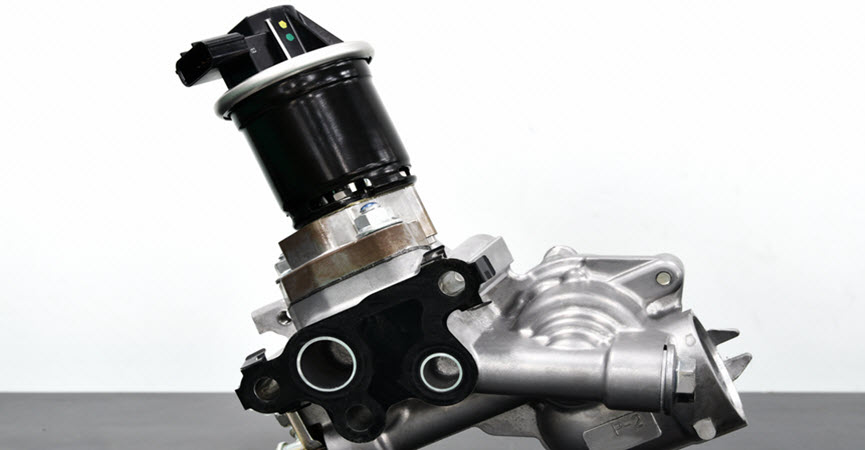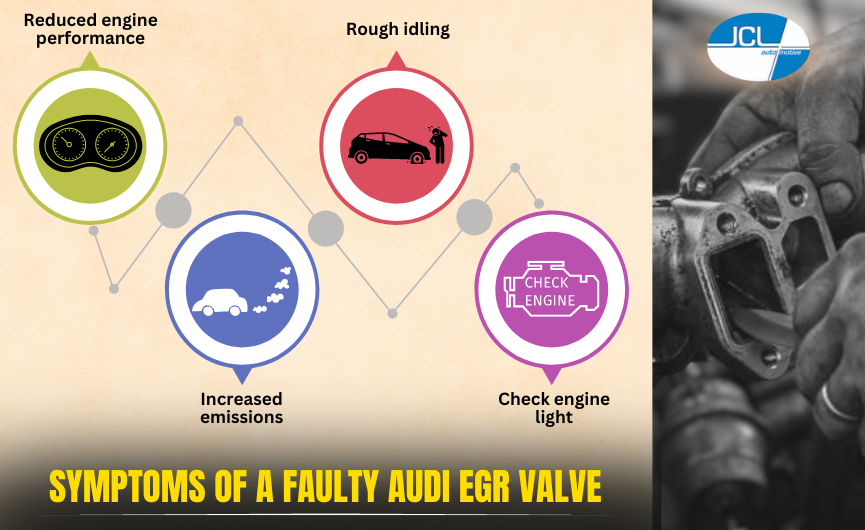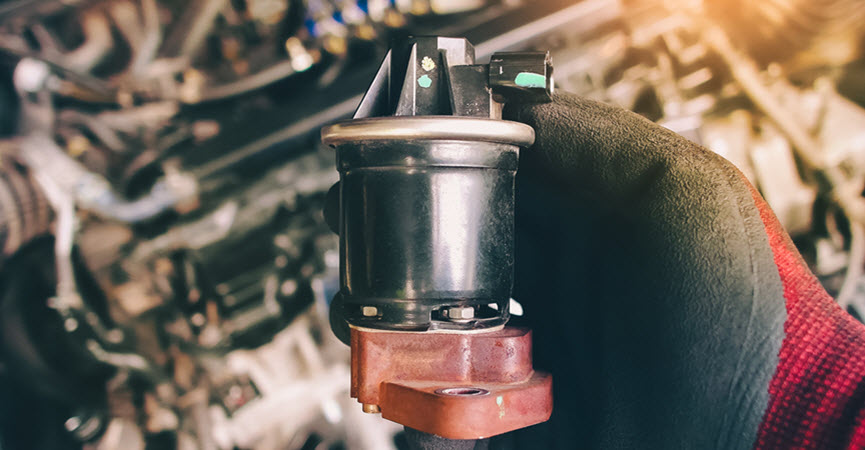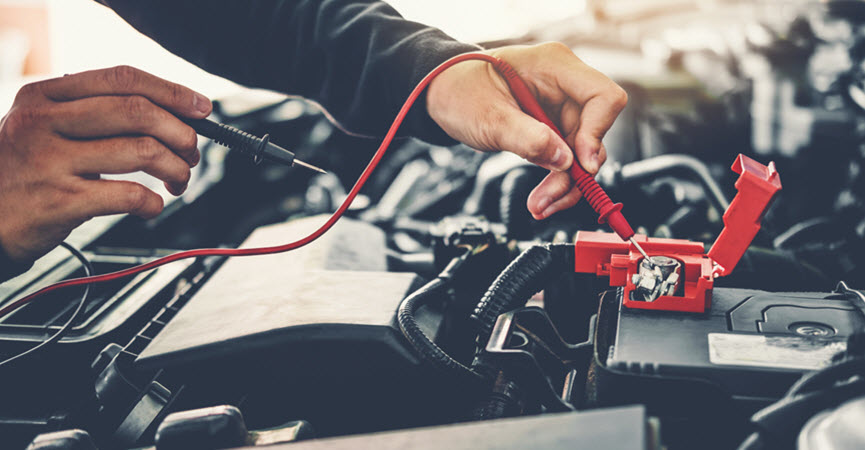
by Chris Limantour | Mar 28, 2023 | Audi Repair
Audi vehicles are known for their high-performance engines, and maintaining the EGR valve is crucial to ensuring the vehicle’s optimal performance and longevity. Regular maintenance and inspections can help prevent EGR valve failure and prolong the vehicle’s lifespan. However, when the valve fails, it’s essential to address the issue promptly to prevent further damage and ensure the vehicle meets emissions standards. Let us go into details on what the EGR valve does, signs of failure, how and where to replace it.
What Is EGR Valve?
The EGR (Exhaust Gas Recirculation) valve is integral to modern engines, including those used in Audi vehicles. The valve’s primary function is to reduce the amount of harmful emissions produced by the engine by recirculating some exhaust gases back to the combustion chamber. This process lowers the engine’s peak combustion temperature, reducing the amount of nitrogen oxides and other pollutants emitted into the atmosphere.
However, over time, the EGR valve can become clogged or damaged, leading to engine problems. When the valve malfunctions, it can disrupt the engine’s air/fuel mixture, reducing performance, increasing emissions, and causing a rough idle. If left unchecked, a faulty EGR valve can cause significant damage to the engine and other components, resulting in costly repairs.
Symptoms of a Faulty Audi EGR Valve

- Reduced engine performance: A faulty EGR valve can cause a reduction in engine performance, resulting in a decrease in power and acceleration. This is because the valve regulates the return of exhaust gases to the engine’s combustion chamber, which affects the engine’s power output. If the valve is clogged or not functioning correctly, it can reduce the amount of exhaust gas that is recirculated, leading to a decrease in engine performance.
- Increased emissions: The EGR valve plays a crucial role in reducing harmful emissions from the engine by recirculating exhaust gases back to the engine’s combustion chamber. If the valve is malfunctioning, it may not be able to regulate the flow of exhaust gases effectively, leading to an increase in emissions. This can cause the vehicle to fail emissions tests and contribute to air pollution.
- Rough idling: A faulty EGR valve can cause the engine to idle roughly or even stall. When the valve is clogged or not functioning correctly, it can disrupt the engine’s air/fuel mixture ratio, leading to uneven combustion and rough idling. In some cases, the engine may even stall when the vehicle is at a stop.
- Check engine light: If the EGR valve is malfunctioning, the Check Engine light may come on, indicating a problem with the engine’s emissions control system. The Check Engine light can be triggered by various issues, including a faulty EGR valve, and it’s essential to have the vehicle inspected by a qualified mechanic as soon as possible to diagnose the issue and prevent further damage to the engine.
Replacing an Audi EGR Valve
If the EGR valve is severely damaged or cannot be repaired, it may need to be replaced. Replacing an EGR valve in an Audi vehicle involves several steps, including:
- Removing the old valve: The old EGR valve is removed from the engine and inspected for any signs of damage or wear.
- Cleaning the valve ports: Before installing the new EGR valve, the valve ports and surrounding area are cleaned to remove any dirt or debris.
- Installing the new valve: The new EGR valve is installed and secured to the engine using the appropriate bolts and gaskets.
- Testing and recalibrating: Once the new valve is installed, it must be tested and recalibrated to ensure optimal engine performance.

JCL Automotive has the Best Mechanics in Hellertown!
At JCL Automotive, we are known as the leading auto repair shop in Hellertown, PA, and we offer a range of services for different kinds of vehicles. We are staffed by certified mechanics trained to diagnose and repair various automotive issues.
If you need assistance with an Audi EGR valve repair or replacement, you may want to contact us to schedule an appointment. Our mechanics will provide you with a comprehensive inspection and diagnosis of your vehicle’s EGR valve to determine if repair or replacement is necessary. Additionally, we can offer you advice on how to maintain your EGR valve to prevent future issues. Visit our shop or call us now for your car repairs.

by Chris Limantour | Mar 11, 2023 | BMW Repair
One of the most common issues in a BMW is an electrical system failure. This can manifest in a number of ways, including dead batteries, malfunctioning power windows, and flickering headlights, and there are a number of reasons why this issue occurs.
In some cases, it’s simply a matter of an aging battery or a loose connection. In other instances, the issue may be related to a faulty alternator or starter. Additionally, electrical system failures can be caused by water damage or corrosion, which can damage electrical components. Let’s take a closer look at the top four culprits of electronic issues in your BMW.
Electrical System Failure
These types of problems have their root causes in the battery and alternator. These work together to both produce and distribute power to things like your starter, headlights, windows, dashboard, and car horn. These problems care pretty obvious and the most common complaint we see in our shop.
Engine Control Module Failure
The engine control module (ECM) is the computer that controls many of the functions of the engine, including fuel injection, ignition timing, and emissions control. When the ECM fails, it can cause a wide range of problems, including reduced engine performance, stalling, and difficulty starting. There are a number of reasons why the ECM may fail, including damage from voltage spikes, water damage, or simply wear and tear over time.
Transmission Issues
Another common electronic issue in BMWs is transmission problems. This can include issues with shifting gears, slipping gears, or a complete failure of the transmission. The causes of transmission issues in BMWs can vary, but they are often related to faulty sensors or problems with the transmission control module (TCM). In some cases, transmission issues can be caused by software glitches or coding errors in the TCM.
Infotainment System Malfunctions
Modern BMWs are equipped with advanced infotainment systems that include features like GPS navigation, Bluetooth connectivity, and streaming audio. Unfortunately, these systems can be prone to malfunctions, including freezing, crashing, and slow performance. The causes of these issues can vary, but they are often related to software bugs, outdated firmware, or hardware failures.
How to Address Electronic Issues
In addition to understanding the causes of these electronic issues, it’s also important to know how to address them when they do occur. In some cases, you may be able to troubleshoot and fix the issue yourself, while in other cases, you may need to take your BMW to our qualified technicians for repair. Here are some tips for addressing the top electronic issues in BMWs:
- Electrical System Failures – If you’re experiencing electrical system failures, start by checking the battery and connections to ensure they’re tight and free from corrosion. If the battery and connections are in good condition, you may need to have your alternator or starter checked by a technician.
- Engine Control Module Failure – If you suspect that your ECM has failed, take your BMW to a qualified technician for diagnosis and repair. In some cases, the ECM may need to be replaced, while in other cases, it may be possible to repair the existing unit.
- Transmission Issues – If you’re experiencing transmission issues, start by checking the transmission fluid level and condition. If the fluid is low or dirty, it may need to be changed. If the fluid level and condition are good, you may need to have your transmission checked by a technician.
- Infotainment System Malfunctions – If you’re experiencing infotainment system malfunctions, check for software updates and install them if necessary. If the issue persists, you may need to take your BMW to a qualified technician for diagnosis and repair.

Fix All BMW Electronic Issues at JCL Automotive
Electronic issues are common in BMWs, but they can be addressed with the right knowledge and approach. By understanding the causes of these issues and knowing how to address them when they occur, you can keep your BMW running smoothly and enjoy its many features for years to come.
At JCL Automotive, we are proud to be the go-to repair shop for car owners in Hellertown, PA. Our technicians have the skills and technical know-how to diagnose and fix all kinds of electronic problems. You can schedule your car’s next service appointment now!
* Black BMW X5 Car image credit goes to: YuriyVlasenko.





